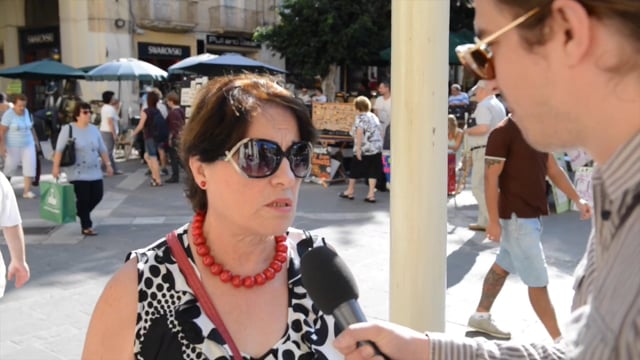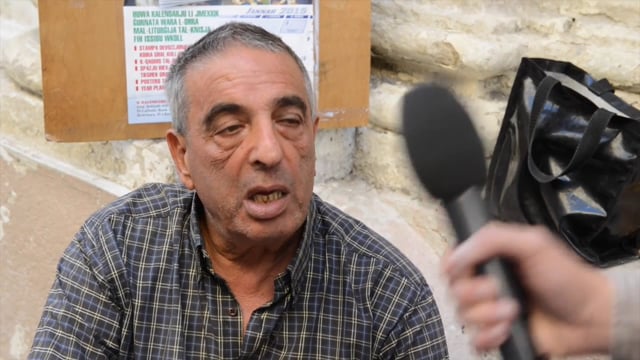Former Sliema councillors: ‘PN wanted to get rid of us’
PN secretary-general Chris Said calls Prime Minister's involvement in electricity meter tampering issue an example of "corruption"



Justice minister Owen Bonnici said he had not heard the audio recording of former Sliema local councillor Cyrus Engerer, today a government consultant, suggesting former mayor Joanna Gonzi how to nail down two councillors she had fallen out of favour with.
In the 2011 recording, Engerer – then a PN councillor before turning over to Labour – had suggested Gonzi to go after councillor Bobby Calì and PL councillor Martin Debono “with a hammer”.
The two men would be later arrested by police and finally acquitted in court over the misappropriation of council funds. There is no suggestion that this action was informed by either Gonzi or Engerer.
On TVM’s Repoter on Monday, justice minister Owen Bonnici said he had not hearing the audio recording, published in 2012 by One News and deposited in court during the proceedings against Martin Debono.
“If he is found guilty of saying it, then he should answer,” Bonnici said on Monday’s edition of Reporter, that discussed corruption and conflicts of interest.
In the audio recording, Engerer is heard speaking to Gonzi, who is heard saying that she wanted the two councillors “dead”. However at the time of their publication in 2012, Labour’s One TV and maltastar.com had censored out Engerer’s comments, who was by then a Labour candidate.
In 2011, Debono was arrested, along with Calì, on suspicion of misappropriating a council laptop and was then made to strip naked in the police station. The two councillors have since been cleared of charges. Engerer is now an advisor to the Prime Minister on EU affairs and the chairperson of the consultative council for LGBT rights.
“They wanted to get rid of us,” Debono and Calì both claimed on Reporter, while Debono said that his treatment was a “breach of his human rights”.
Perception of corruption
83% of Maltese people believe that government corruption is rife, according to an EU survey published earlier this year.
“We are now ranked 46th in the list of countries whose people believe corruption is widespread and we are constantly slipping own these rankings,” former Nationalist MP Frank Portelli said. “We are now ranked behind countries like Botswana, Cyprus, and Poland.”
The Permanent Commission Against Corruption was set up in 1998. However a report by judge emeritus Giovanni Bonello shows that it never found enough evidence for the police to arraign anyone, despite their having investigated 425 cases.
“We shouldn’t have a toothless commission to investigate corruption cases but rather a system, like in the USA, where people are appointed by parliament to investigate corruption cases,” Portelli said.
Bonnici said that recent government initiatives such as the Whistleblower’s Act and the Party Financing Bill prove their commitment to tackling corruption. However, PN secretary-general Chris Said cited Prime Minister Joseph Muscat’s involvement in the electricity meter tampering issue as an example of government corruption: Muscat had called on people who benefitted from the tampered electricity meters to own up and repay what they had stolen, plus a penalty and avoid being taken up to court.
“Why did Muscat say what has to happen before the police had started their investigations?” Said asked. Alternattiva Demokratika deputy chairperson Carmel Cacopardo added that Muscat’s interference raises questions concerning the autonomy of the police.
Said also criticised the government for having not yet published a revised ministerial code of ethics, with Bonnici saying that it was almost complete.
He also criticised Bonnici for not temporarily resigning as a minister while he was facing charges for causing involuntary injury during a car crash last April, charges which he has since been cleared of. He compared it to his own resignation as parliamentary secretary back in 2010 after being charged with perjury.
“Despite everyone around me telling me that I shouldn’t have resigned, I stuck by my conscience and resigned anyway,” Said said.
“You can’t compare my case with Said’s,” Bonnici said. “Mine was an unfortunate incident that could have happened to anyone. If I was found guilty in court then yes, I would have resigned.”
Portelli called for a separate board of ethics to investigate such cases involving high-ranking officials. “It shouldn’t simply be up to the Prime Minister or the minister in question to decide whether a resignation is warranted,” he said.
Bonnici also defended his political appointments after Said criticised him for getting rid of the entire culture board after the Labour Party entered government.
“We employed a lot of capable people from different sectors onto the culture board,” Bonnici said. “There has to be some tandem amongst board members though, otherwise we’ll take too long to get our work done.”
Live current affairs programme Reporter is presented by Saviour Balzan and produced by MediaToday. The programme’s new format includes lawyer Ramona Frendo as a resident opinionist.
Reporter is aired live every Monday at 9.45pm on TVM 1
Follow Reporter on Facebook or on Twitter @ReporterMalta






















